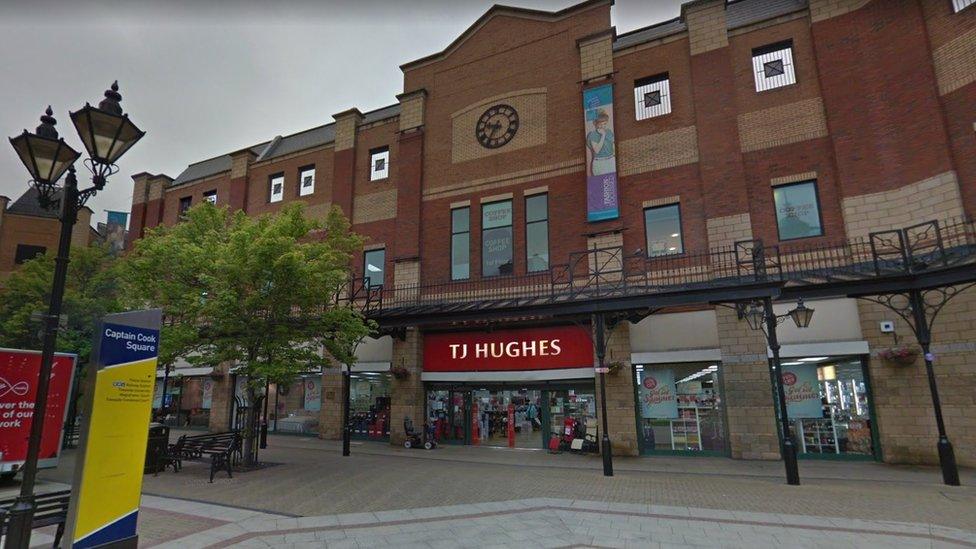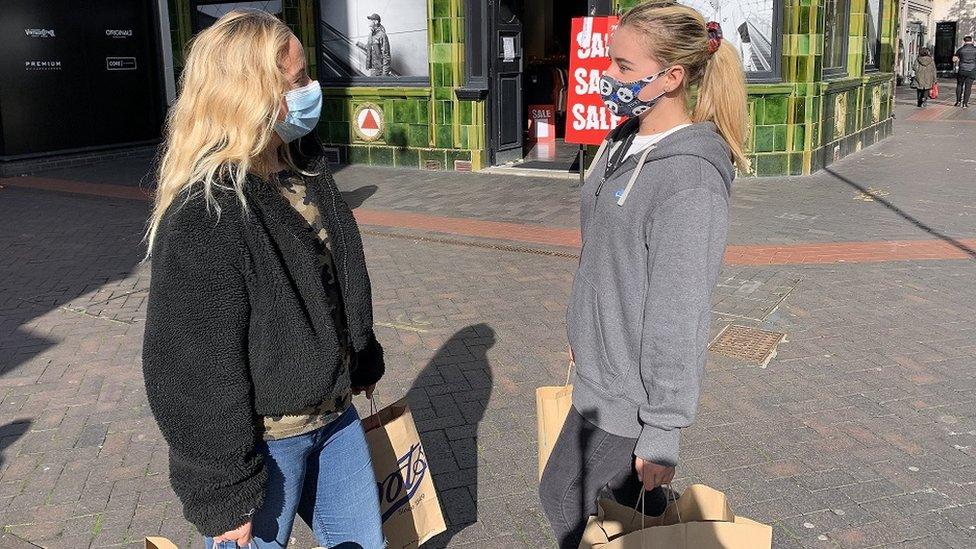Middlesbrough's TJ Hughes fined £17,000 over Covid-19 breaches
- Published

The store has said it had "voluntarily" made the decision to close "until further decisions are made"
A department store in Middlesbrough has been fined £17,000 for "ignoring" Covid-19 lockdown rules preventing non-essential retailers from opening.
The council has not named the business but the BBC understands it to be TJ Hughes in Captain Cook Square.
It has now closed, writing on Facebook it had "voluntarily" made the move "until further decisions are made", external.
The council said it is "understood" other local authorities were pursuing enforcement action against the company.
The BBC has contacted the retailer for a comment.
On 4 November, the day before England entered the second lockdown, the Middlesbrough store told customers that "as an essential retailer" it was "happy to announce" all of its stores would remain open.
"We remain proud to serve our customers and local communities throughout this difficult time and have ensured all Government Covid-19 guidance is in place to keep everyone safe," the social media post added.
The council said it issued several fixed penalty notices and a prohibition notice, for what it said was failing to close as required.
The business has since complied and will no longer trade during restrictions, the council added.
Infections 'alarmingly high'
Four town centre phone retailers also received £1,000 fixed penalty notices.
Although allowed to operate collection services, the council said they were "observed" selling directly from their premises.
Judith Hedgley, head of public protection, said a number of shops which were not essential retailers were found to be trading.
"In some cases they have tried to get around the restrictions by selling or claiming to sell a small amount of food, medicines or items that are actually essential," she added.
"Some shops have even started to sell such items like face coverings then claiming they are essential on this basis."
The council says the town's infection rate is "alarmingly high" and it was taking action to protect public health.
In the seven days up to and including 15 November, Middlesbrough reported 622 cases, with an infection rate of 441.2 per 100,000 of the population, according to figures.
Andy Preston, the independent elected mayor, said the town needed "as short a period of lockdown as possible", with further restrictions causing "more damage."
"This is about protecting public health and also people's livelihoods and futures," he added.
Under the current restrictions only essential retail such as food shops, supermarkets, pharmacies, hardware stores and off-licences should be open, together with other permitted retail such as garden centres.
Non-essential retail, such as clothing and homeware stores and shops selling electronic goods and mobile phones should be closed other than for click-and-collect.

Follow BBC North East & Cumbria on Twitter, external, Facebook, external and Instagram, external. Send your story ideas to northeastandcumbria@bbc.co.uk, external.
- Published15 November 2020

- Published1 October 2020
